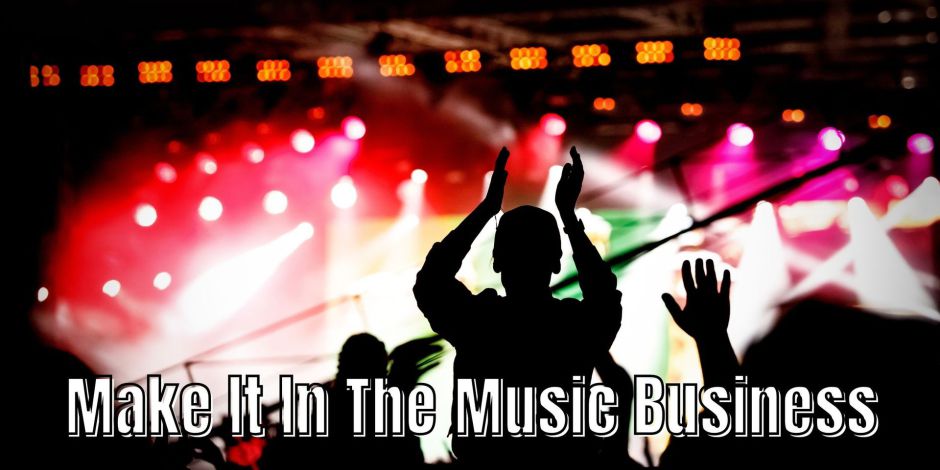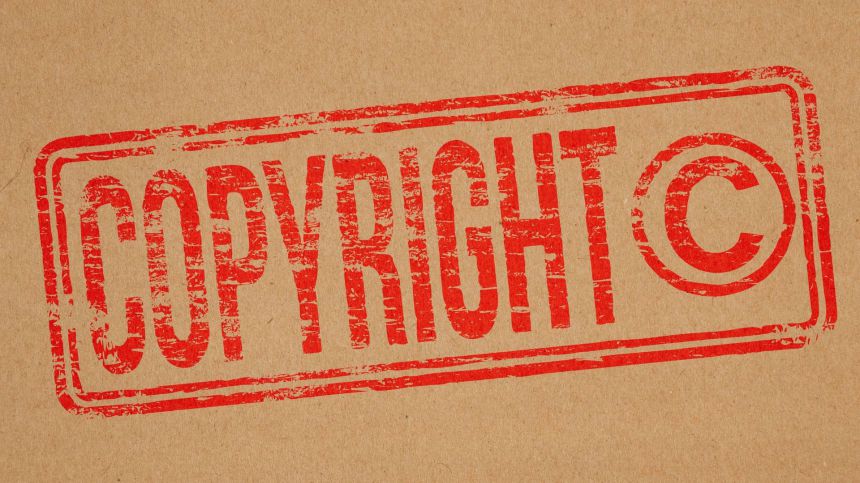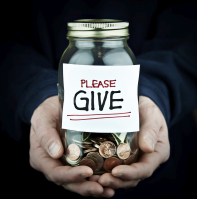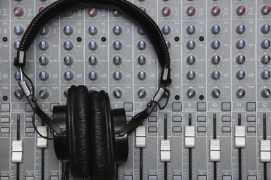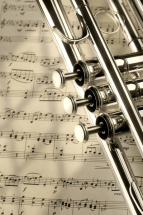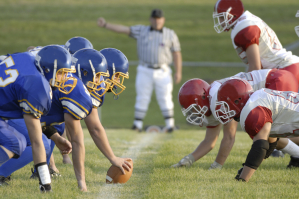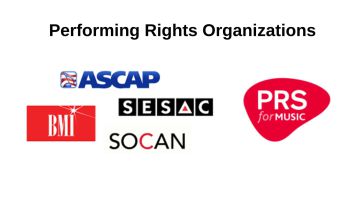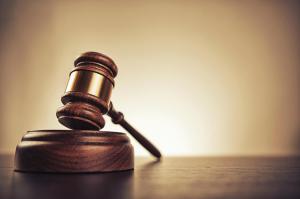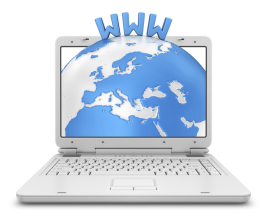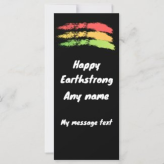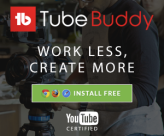How to Copyright a Song | Copyright and Copyright Registration
Disclaimer: The information in this article is for educational purposes only and is not intended as legal advice. Copyright laws may vary from country to country and evolves through legislation and case law. If you are in a dispute please seek professional legal advice.
What is Copyright
Copyright is a form of intellectual property law that protects original works of authorship. It plays a significant role in determining ownership and the flow of revenue related to the work.
How to Get Copyright For a Song
To copyright your song in the first instance is not difficult to do. Music is automatically copyrighted the moment you create it in a tangible medium. So as soon as you have written that song down in your lyrics notebook or you have created a demo audio recording you now own the copyright. You are protected by Copyright law and third parties cannot use your song without your permission, in theory.
Proving Song Copyright Ownership
Keeping hold of all your rights is an entirely different proposition. This is where there will be a divergence in law between different countries and the burden of proof can make defending your rights difficult. In this article, I will refer to the approach in the UK and the US.
United Kingdom
In the UK there is no official method to register your copyright. However, there are ways to provide evidence of creation and ownership.
One way is by mailing or saving a physical copy of the work in any way that will help to timestamp when it was created. For example, you could send it to yourself by recorded delivery, or deposit it with your bank. You must make sure that there is some sort of timestamp on whatever the work is enclosed in and this must remain sealed for this to provide any legal proof.
In this digital age emailing or saving the work in the cloud can also provide a time-stamped copy. However, sending a copy of your work to yourself by recorded delivery is stronger evidence of copyright ownership as it will have your name attached to it.
These methods do not guarantee that in any dispute or litigation that they will be accepted as proof of copyright ownership, but the more evidence you can provide helps to build your case. So, it is always a good idea to keep your song notes and lyric iterations as additional evidence of the creative process leading up to the final piece of work.
United States
Although the practice of sending a copy of your own work to yourself, sometimes called a “poor man’s copyright”, is recommended in the UK. There is no provision in US copyright law for this to offer any type of protection. However, you do have the option to register your copyright.
US Copyright Office Registration
The US Copyright Office does not provide copyright itself. As stated above you are afforded copyright the moment you record your work in a tangible medium.
What the US Copyright Office does provide is a certificate of registration of your copyright. This is a formal document issued directly from the Copyright Office to you that certifies that you are the owner of a work and that they have a record of your ownership on file.
What Benefit Does Copyright Registration Bring
Under normal circumstances where two or more parties are claiming copyright to a piece of work. Both parties will try to bring evidence that shows they created the work being contested and that the other party has infringed their rights. The outcome will likely be based on who has the strongest case.
Registration of your works with the U.S. Copyright Office gives you stronger evidence, "prima facie" evidence that you were the first to create the work. What this "Prima facie" evidence means is that the other party bears the burden of proof to prove that the work is not yours. This puts you in a much stronger position.
What Are Your Rights As a Copyright Owner
As the owner of your work's copyright, you will automatically be afforded certain rights.
You have the sole authority to:
- Make copies of the music
- Issue, lend or rent copies to the public
- Perform, show or play the music in public
- Transmit the music to the public (i.e. broadcasting it via TV, radio, internet etc.)
What Types of Copyright Exist
The Sound Recording
The sound recording refers to the actual audio recording itself, whether it’s done in your bedroom, home studio or a commercial studio. Depending on who is involved in the creation of the audio recording and the engagement terms or contract. The sound recording copyright could be shared with the performer, producer or engineer.
This can also be impacted greatly by the genre, complexity of the production and the status of the other parties. For example, if you acquire the services of a top-notch producer, their terms of engagement may well include having some percentage ownership of the copyright of the sound recording.
If you get signed to a record company, its common with most record deals that the record label owns the rights to the "masters". That is the final audio sound recordings. This gives them the right to distribute your music and collect revenue on your behalf which is likely to be shared. There is normally a timeframe associated with these rights that could last long after your contract with the record label has ended.
The Musical Composition
The musical composition refers to the music and lyrics of the work. This may be in the form of written documentation or captured electronically. The copyright could belong solely to you if you were the composer and lyricist or could be shared with those you collaborated with. This is why it is important that terms of engagement are clear when collaborating or using third parties in your productions like singers, session musicians etc.
A single musical composition could be associated with multiple sound recordings if the same song is recorded separately by different Artists. In which case, you would still be entitled to royalties from each artist.
What Protection Does Copyright Give to the Copyright Owner
Copyright Protection 1 - Public Performing Right
The exclusive right of the copyright owner to play their music publicly. A “public performance” of music as defined in U.S. copyright law is music played outside a normal circle of friends and family.
Copyright Protection 2 - Right to Issue a Public Performance License
The copyright owner or his agent can grant the right to perform or transmit the work to, the public. This is normally done in the form of a license which is an agreement between a potential music user and the copyright owner that grants the user permission to play the song in public or transmit it online or on the radio.
Copyright Protection 3 - Right of Reproduction
The exclusive right of the copyright owner, to authorize the reproduction of a musical work. For example, in the format of a vinyl record or CD.
Copyright Protection 4 - Right to Issue a Mechanical License
Issued on behalf of the copyright owner granting the right to reproduce, in physical form, a musical work and distribute it at an agreed fee per unit manufactured and sold.
A mechanical license is also a license from the copyright owner or representative to another party to "cover" the song, reproduce, or sample a portion of the original composition.
Copyright Protection 5 - Right to Issue a Synchronization License
Copyright Protection 6 - Digital Performance Right in Sound Recordings
Sound Exchange along with record companies license the exclusive rights on behalf of copyright owners in a sound recording (as stated above this is separate from the copyright in the underlying musical composition) under U.S. Copyright Law to authorize digital transmissions (e.g. internet radio).
Performing Rights Organizations (PRO)
Most countries have their own performing rights organization (PRO). In the US examples are ASCAP, BMI, SESAC and SOCAN. In the UK there is PRS for Music.
As a member of a Performing Right Society, you give permission to the organization to protect your rights, monitor any kind of music use and collect royalties on your behalf. This can only be carried out by the organization if you register your work with them (this is not the same as copyright registration).
How long Does Copyright Last
This varies from country to country. However, in the UK, copyright lasts for a period of 70 years from the end of the calendar year in which the author dies. If the music originates from outside the European Economic Area (EEA), the copyright lasts for as long as the music is protected by copyright in its country of origin.
What is Fair Use
Yes, you may be the copyright owner but through case law in different countries, an allowance for fair use has developed. What is fair use? Well, under certain circumstances, copyrighted material may be reused without the permission of the copyright owner. But this is determined on a case-by-case basis and in accordance with the rules in place for each country.
In the United States, using content for educational, research or informational purposes, as well as to comment or criticize it, may be considered fair use.
One of the first things to understand about fair use is that it is not a law or an exception to copyright law. It's a defence used if a third party has a copyright infringement claim made against them. If they are successful with this defence, they are allowed limited use of the copyrighted work without obtaining the copyright holder's permission.
There is also no minimum length of your work that is not protected. It is commonly thought that a snippet under 30 seconds is not covered by copyright but this is not true. The entirety of your work falls under copyright law no matter how small the infringement.
Although fair use is a term in common use, each infringement will be judged on its own merits, so it does not mean that as copyright owner you will not be successful in any claim.
Copyrighted Content Technology
With the continued advancement of technology and the endless musical platforms and channels available to transmit music to the public. Copyright owners and their representatives cannot by themselves monitor the use of copyrighted material.
The case for the protection of owners' intellectual property is being advanced by economic markets and the institutions that govern them. This has led to pressure being brought to bear on technology companies like Facebook that host musical works that may breach copyright law.
So companies like Google that own YouTube have and are developing technology that allows copyrighted musical works to be protected. In the case of YouTube, they have their Content ID technology that allows rightsholders to identify and manage their content on YouTube.
Content ID does this by scanning videos across YouTube and finding other videos that match the official sound recording or composition.
This technology has been created in conjunction with other music stakeholders like labels, publishers, and other licensors who can now automate much of their rights management through Content ID.
However, many copyright owners are also artists and producers and also have their own channels or profiles on these platforms. So often, copyright owners may see that music videos on their own channel have been “claimed” by Content ID.
In most cases, this simply means that the rightsholder has opted into Youtube's Content ID (normally via their distribution company) and has delivered music to the Content ID database which has flagged the uploaded video as containing copyrighted material. This normally has no effect on your channel and is just a notification. So at least you know the system is working.
This article summarises the key principles of copyright and is not intended as legal advice but to enlighten creators of music on areas that could affect their rights and revenue. Copyright is always evolving due to case law so always carry out your own research and if you have a dispute seek legal advice.
After all the hard work we put in to create a piece of work let's make sure we reap the benefits and not someone else.
